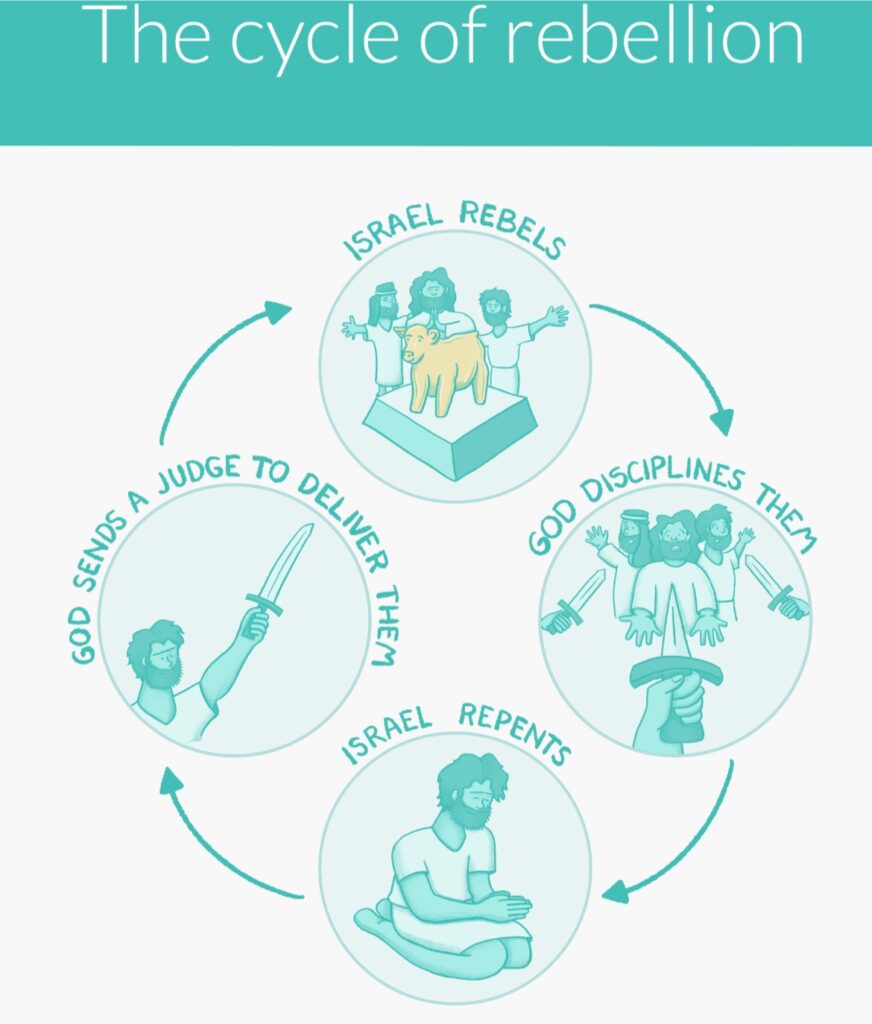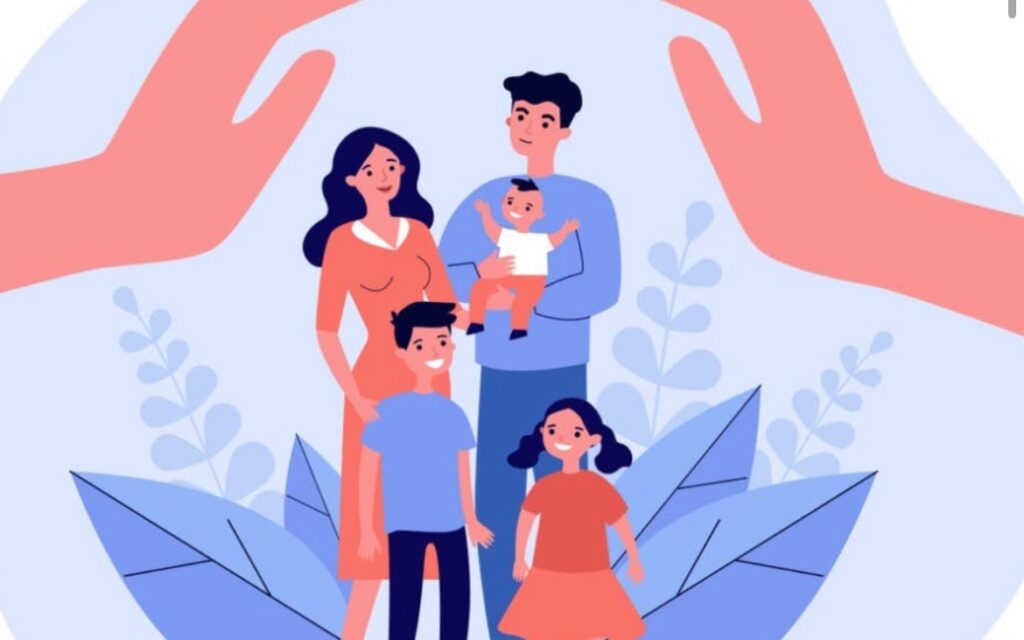Heart Condition of the people
When we look at the history of the people of Israel, we find a pattern which repeats throughout. Whenever life is peaceful, they fall into idolatry and rebellion against the God who saved them. We find this pattern repeatedly during the time of the Judges and the Kings and also during the exile. When they are sinful, God disciplines them by allowing problems and enemies in their lives.

When they go through the painful discipline, they cry out and repent to God and God delivers them – either through a judge or a king. Then for some time they are thankful to God and want to please Him. But soon they fall back into the life of sin and rebellion that they are used to.
Even in the 21st century, isn’t human nature still the same? Don’t we find ourselves making the same mistakes that they did?
At a particular point in the history of Israel, when the people are slipping far away from Him, God is looking deeply into the hearts of His people. This is one comment he makes through the prophet Jeremiah:
Jeremiah 2:13
“My people have committed two sins: they have forsaken me, the spring of living water, and have dug their own cisterns, broken cisterns that cannot hold water.”
Two observations that can be made from this verse is:
- People are thirsty
There are frequent references to thirst and thirsty hearts in the Bible. We all long for what God has designed us to enjoy: tension-free relationships filled with deep loving acceptance and with opportunities to make a difference to someone else. Also we can note that even though people are thirsty, God never condemns them for the thirst. Neither of the two sins He rebuke them for involve the fact that the people are thirsty.
- People are moving in wrong directions in response to their thirst
They refuse to trust God to look after their thirst. Instead, they insist on having control in finding their own satisfaction. They are searching for a fulfilment they can generate. Or, people want to run their own lives. Simple trust is out of fashion and self-protection is the norm.
This exposes the people as both thirsty and foolish. So, an inside look can be expected to uncover two elements embedded in our heart:
- thirst or deep longings for what we do not have, and
- stubborn independence reflected in wrong strategies for finding the life we desire.
The first reflects our humanness. We long for a quality of relationship and meaning that no other creature has the capacity to enjoy. The second element exists because we are sinful. Only foolish, rebellious, proud people would move away from the Source of life in search of a fulfilment they can control. And that is exactly what we have done – and do. We require that we never hurt again the way we once did in some previous trauma. We live to gain life from others and to protect ourselves from whatever we think is life-threatening. Thus, an inside look into our hearts reveal both deep, unsatisfied longings as well as foolish and ineffective strategies for keeping ourselves out of pain.
Dealing with our desires
If we are ready to admit it, we want certain things in our life. We want people to make us feel good by the way they treat us, we want job and financial opportunities that bring us pleasure and security, we want to know we matter to someone and belong somewhere. We want everything to be pleasant, in fact.

But when we try to admit these wants, we feel selfish. So we pray that God will help us get over this selfishness. Hence we pray more, read the Bible more, fast more, memorise Scriptures, do all spiritual exercises we can to drive this away.
But still the desires remain. They don’t go away. We cant deny our inside desires without losing touch with a very real part of our existence. We do want meaningful relationships and security.
So what do we do with these stubborn desires that simply will not go away? Are they sinful or are they legitimate? And the truth is, if all of our desires are satisfied, some of them are at the expense of others. The reality of internal desires must be handled in such a way that we compromise neither our personal vitality nor the Lord’s command to love one another.
Change from the inside out moves us toward both (1) a passionate awareness of longings that keep us warm-blooded and real, and (2) a non-demanding style of relating that frees us to genuinely care about others.
First, we should understand that, our desires are related not only to our fallenness, but also, more profoundly, to our humanness. In other words, it’s okay to desire.
Both errors in responding to our longings – hiding them under a cloak of spirituality or focusing on them to find satisfaction – deny the simple truth that we legitimately want what we cannot have in this world, or until we take up residence in a perfect and uncorrupted world. It is therefore not only okay to desire, but it is also okay to hurt.
Husbands do want their wives to respect them and wives do want their husbands to treat them well. Parents do want their kids to be responsible and obedient and children do want their parents to appreciate and acknowledge them. In our colleges and in our work places, we want to matter and to be considered. We are all looking forward to meaningful relationships where we are treated well.

Take, as an example, a situation where a husband feels that his wife could have treated him with more respect in front of others. My longing to be respected and to matter to others is legitimate and to deny the longing is to neglect a part of me that God made.
The longing reflects both (1) the Creator’s wisdom and kindness in designing me with freedom and (2) the separation between God and me introduced by sin.
My desire for respect is tied both to my fallenness and to my humanity. When I perceive that I am disrespected, it hurts just as my toe hurts when a heavy person steps on it. I can no more eliminate the pain inside me than I can pretend my stepped-on toe does not hurt. But there is one important thing to remember. I was built for respect and I cannot change that fact. But more than respect, I was designed for relationship. I want someone to be involved with me who is strong enough to handle everything about me without retreating from me or feel threatened. My desire to have a good relationship with my wife is stronger than my desires and helps me to treat my wife kindly. So I am acknowledging the longings that keep me warm-blooded and real as mentioned earlier and at the same time, having a non-demanding style of relating that frees me to genuinely care about the other person.
Take as another example, a mother who wants her family to be together, but the son gets an opportunity to go abroad and study. As a mother, it is my legitimate desire that my son be with me and wanting to see him grow up is not a sinful longing. But, when I realize that holding him back to fulfil my legitimate desire is being selfish, I let him go. So I realize that it’s not only okay to desire, but it’s also okay to hurt.
God’s prescriptions for handling life do not relieve an ache that is not meant to cease this side of Heaven, they enable us to be faithful in the midst of it. People let us down, we let people down. We must face this: Something is wrong with everything. No matter how closely we walk with the Lord, we cannot escape the impact of a disappointing and sometimes evil world. It’s okay to desire, and also, it’s okay to hurt.
Our modern or new-gen understanding of Christian joy envisions an eager excitement as we face each day, yielding to a serene warmth and prosperity in older years, capped off with the bliss of heaven forever.
But the biblical writers see things differently. Faith is required because life can be overwhelmingly confusing. Hope for a better day is all we can cling to in those honest moments of facing life’s disappointments. And love is the only approach to life that achieves God’s purposes and gives us a sense of relationship with Christ and others. Faith, hope, and love in the midst of a difficult world – that’s a different understanding of what to expect from life than the view that promises we can always feel good.
But then, the Lord did speak of rivers of living water bubbling up in the souls of people who come to him – in Jeremiah 2:13 and John 7:37 and 38. So apparently there is more to Christian living than well-handled pain. Or is there?
Source: Inside Out by Larry Crabb

THP Team
The Healing Project Team comprises compassionate individuals who understand the struggles of mental health and faith. We are here to offer support, acceptance and hope through God’s healing plan.

